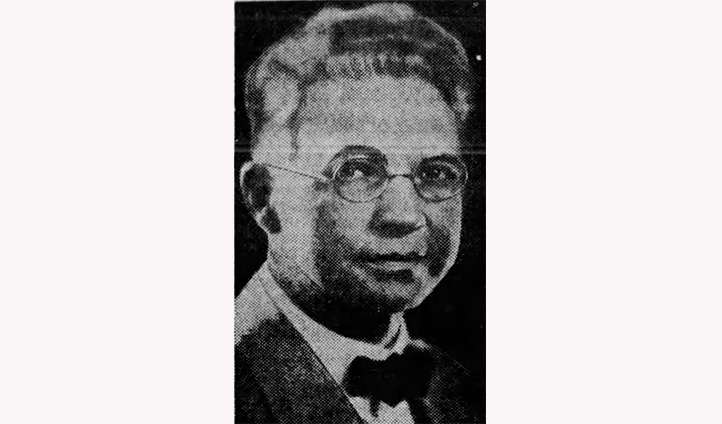Impeachment of Judge Halsted L Ritter

Halsted L Ritter, who served on the U.S. District Court for the Southern District of Florida, was impeached and removed from office in 1936. Ritter challenged the impeachment by arguing that he was not convicted on any specific charge but only “general misbehavior.” However, he was unsuccessful.
Legal Career of Halsted L Ritter
Halsted Ritter was born in Indianapolis, Indiana in 1868. After he graduated from DePauw University, Ritter opened a private law practice. He practiced law in Indianapolis from 1892 to 1895, and in Denver, Colorado from 1895 to 1925. In response to his wife’s health issues, he moved to Florida in 1925.
President Calvin Coolidge nominated Ritter to the United States District Court for the Southern District of Florida on January 23, 1929, to fill the seat vacated by Rhydon Mays Call. Ritter was confirmed by the U.S. Senate one month later.
Impeachment Proceedings of Halsted L Ritter
In 1933, the House of Representatives began investigating Judge Ritter. The charges included favoritism in the appointment of bankruptcy receivers, practicing law while sitting as a judge, using his office for personal gain, and tax evasion. The House impeached Ritter on March 2, 1936.
The Articles of Impeachment specifically alleged that Ritter appointed his former law partner as a bankruptcy receiver and paid him excessive fees. Ritter received a $4,500 kickback from the receiver’s legal fees and later failed to report the income when filing his tax returns.
Ritter was acquitted on the first six articles but found guilty on the seventh article. Interestingly, the last article was a cumulative summary of the charges in the preceding six articles, on each of which Ritter was found “not guilty.”
At the opening of the Senate impeachment trial, Ritter’s attorney sought to dismiss Article VII. He argued:
Article VII constitutes an accumulation and massing o£ all charges in the preceding articles upon which the court is to pass judgment prior to the vote on Article VII, and the prosecution should be required to abide by the judgment of the senate rendered upon such prior articles, and the senate ought not to countenance the arrangement o£ pleading designed to procure a second vote and the collection or accumulation o£ adverse votes, if any, upon such matter.
Nonetheless, Ritter was convicted on Article VII by one vote. When a member of the Senate questioned the verdict, the Senate president pro tempore stated that Article VII charged Ritter with general misbehavior, “which is a separate charge from any other charge.” Ritter was subsequently removed from office on April 17, 1936.
Ritter challenged the conviction in the federal Court of Claims, arguing that the Senate could not convict him on a general charge of misbehavior after failing to find him guilty of any specific offense. The Court of Claims dismissed the case after concluded that it lacked jurisdiction because the Senate was given the exclusive authority to try impeachments under the U.S. Constitution.
For a full list of all Federal Judges that have been impeached please visit our Impeachment of Federal Judges page.
Previous Articles
SCOTUS Wraps Up Oral Arguments for the Term
by DONALD SCARINCI on May 17, 2022
The U.S. Supreme Court has concluded its oral arguments for the October 2021 Term. The justices hea...
SCOTUS Rules Censure of Elected Board Member Didn’t Violate First Amendment
by DONALD SCARINCI on May 10, 2022
In Houston Community College System v. Wilson, 595 U.S. ____ (2022), the U.S. Supreme Court held th...
Supreme Court Breach Is Not the First Involving Roe v. Wade
by DONALD SCARINCI on
The recent disclosure of Justice Samuel Alito’s decision purporting to overturn Roe v. Wade is ar...
The Amendments
-
Amendment1
- Establishment ClauseFree Exercise Clause
- Freedom of Speech
- Freedoms of Press
- Freedom of Assembly, and Petitition
-
Amendment2
- The Right to Bear Arms
-
Amendment4
- Unreasonable Searches and Seizures
-
Amendment5
- Due Process
- Eminent Domain
- Rights of Criminal Defendants
Preamble to the Bill of Rights
Congress of the United States begun and held at the City of New-York, on Wednesday the fourth of March, one thousand seven hundred and eighty nine.
THE Conventions of a number of the States, having at the time of their adopting the Constitution, expressed a desire, in order to prevent misconstruction or abuse of its powers, that further declaratory and restrictive clauses should be added: And as extending the ground of public confidence in the Government, will best ensure the beneficent ends of its institution.




